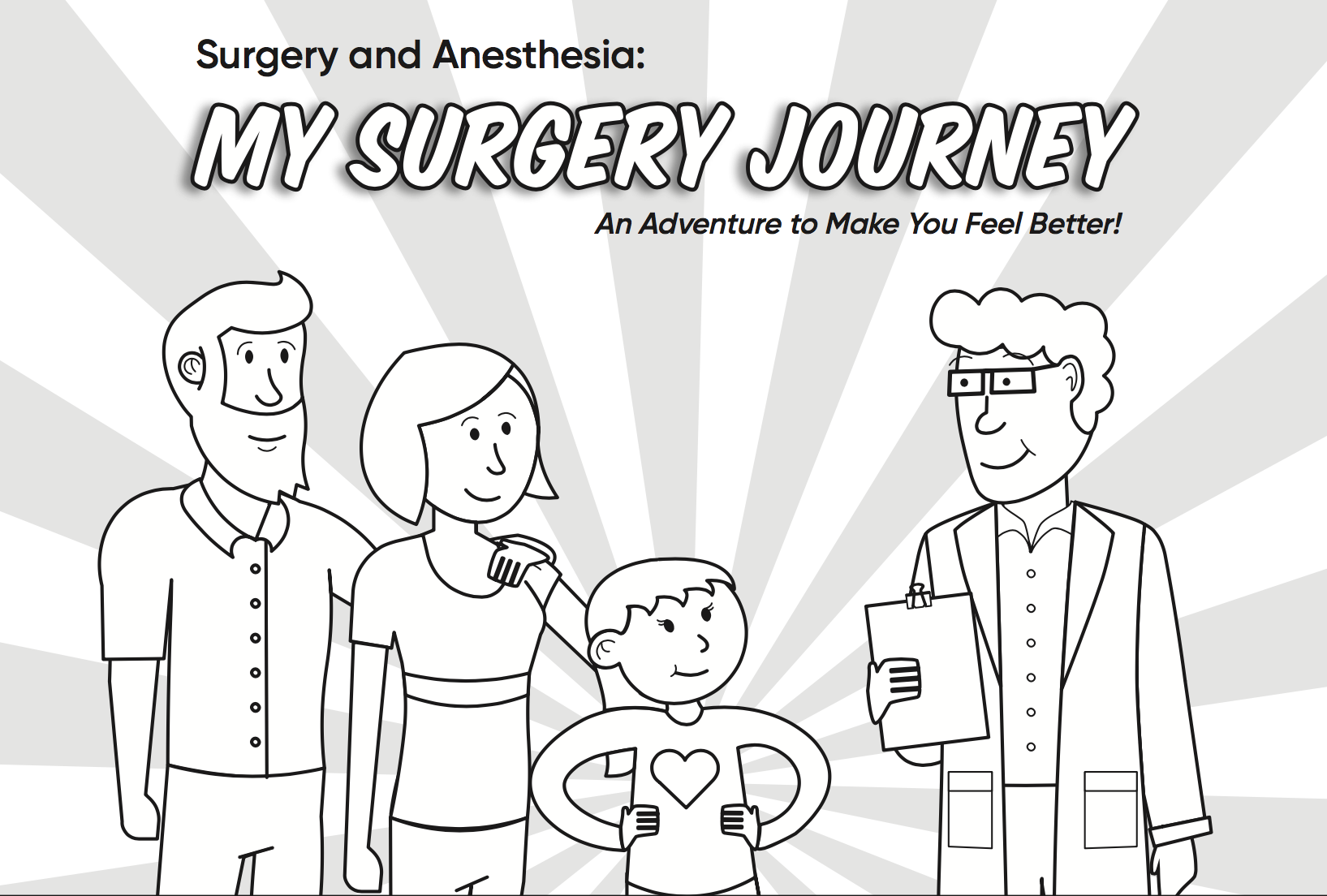Preparing for Surgery: Kids
Millions of children have surgery every year, but that may be little comfort to you if your child is one of them. It’s normal to feel anxious, but preparing yourself and your child will help ensure that your child is safe and healthy and your nerves are under control.
Asking questions and talking with your child’s care team, including the anesthesiologist, will help you become more confident and relaxed, and help you learn more about what to expect.
Asking questions and talking with your child’s care team, including the anesthesiologist, will help you learn more about what to expect.

Children’s Coloring Book: My Surgery Journey
When children need surgery and anesthesia, it can be hard to explain to them what’s going to happen. Download ASA’s coloring book to help kids understand the process in their own way.
Who will provide anesthesia for your child?
If your child is scheduled for surgery or a procedure involving anesthesia, you may be anxious about what will happen. The most important thing you can do to reduce the already low risk of problems is be sure your child’s anesthesia care is led by an anesthesiologist, a medical doctor who specializes in anesthesia, pain control, and critical care medicine. With 12 to 14 years of education, including medical school, and 12,000 to 16,000 hours of clinical training, these medical experts consult with you and members of the care team to develop the best anesthesia care plan for your child.
How will the anesthesiologist care for my child?
Anesthesiologists understand that children often are frightened about medical procedures and surgery, and they will work with you, your child, and the other physicians and nurses before, during, and after the procedure to calm fears and ensure your child’s safety and comfort.
You’ll meet with the anesthesiologist to discuss what type of anesthesia will be used and how it will be given. You’ll also be able to ask questions about potential side effects and your child’s experience during surgery and recovery. The anesthesiologist will ask about your child’s health and your family’s medical history to find out about conditions such as asthma or allergies, what medications your child takes, and whether your child or any family members have had anesthesia — and any problems with it — in the past.
The anesthesiologist will also tell you how your child should prepare for surgery. For example, your child may not be able to eat anything or take any prescribed medications the night before and the day of the surgery.
During the surgery, the anesthesiologist will provide medications to keep your child comfortable and pain-free. Depending on what works best for your child, the medication will be given either through an IV or a mask that lets your child inhale the medication. Your child will be closely monitored throughout the entire procedure for changes in heart rate, breathing, and blood pressure, and if needed, adjustments in the anesthesia will be made to help keep your child safe and comfortable.
What should you tell a child before surgery?
Fear of the unknown is often worse than reality, so it’s important to be honest about what will happen and explain that the surgery is being done to fix something that’s wrong or to help the child feel better. Your child’s age and ability to understand will help you determine how much information to provide.
Tell your child the hospital or clinic won’t be like home. Some hospitals give children tours so they can become familiar with the environment, and have professionals on staff who specialize in explaining things to children. Also ask about the availability of child-oriented videos and books. Some younger children benefit from staff members or family members acting out the hospital stay with play, using pictures, dolls, and other toys to explain what to expect and answer their questions.
Remember children take cues from their parents, so if you’re calm and confident, your child is more likely to be as well.
Hospitals encourage parents to bring their children’s favorite and familiar objects from home, so pack books, a favorite stuffed animal, or blanket. Let your child help with the packing and choose what he or she wants to take.
 How should anesthesia be explained to your child?
How should anesthesia be explained to your child?
Tell your child that he or she will take a nap after taking some medicine provided by a special physician, and they won’t feel anything during the surgery. Avoid saying the physician will “put you to sleep,” because some children associate that with a pet who was euthanized. Explain that many physicians and nurses will be there to make sure everything goes well. Tell your child that after surgery, he or she might hurt, have an upset stomach, or might even throw up, but the nurses and physicians will provide medicine to make it better. Assure your child that you will be nearby the entire time.
What will happen after surgery?
Some children regain consciousness from anesthesia and are fully alert right away; others are groggy for a few hours. Nausea and vomiting sometimes occur. Once the procedure is over, your child’s pain will continue to be controlled. The anesthesiologist will determine the safest and most effective pain control method to make your child’s recovery as comfortable as possible. This could include medication given by mouth, through an IV with a pump, or injection of local anesthetics around nerves.
